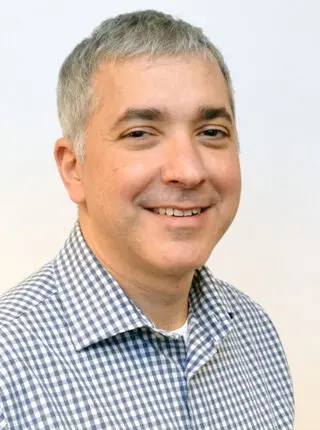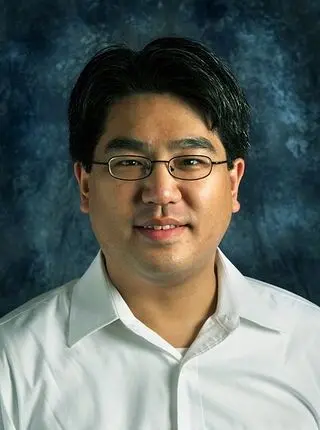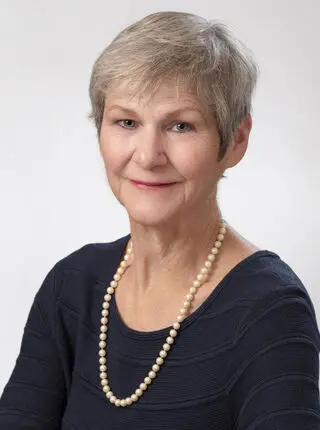Leadership
-
Read More about David A. Wolk, MD
David A. Wolk, MD
Co-Director
David A. Wolk, MD
Co-Director
Dr. David Wolk is Professor of Neurology, Chief of the Division of Cognitive Neurology, Director of the National Institute of Aging funded Penn Alzheimer’s Disease Research Center, Co-Director of the Penn Institute on Aging, and Co-Director of the Penn Memory Center.
Dr. Wolk’s primary clinical interest has been in the diagnosis and care of individuals with a variety of neurodegenerative conditions. His research has focused on the cognitive neuroscience of memory decline associated with aging and Alzheimer’s Disease using techniques including behavioral testing, structural and functional MRI, and FDG and molecular PET imaging. Much of this work is also directed at examining biomarkers, including behavioral and neuroimaging, that differentiate healthy aging from the earliest transition to AD and their potential role in understanding disease mechanisms and incorporation into treatment trials. Another related thread of his work has been to better understand, classify and predict sources of heterogeneity in AD. Dr. Wolk has had sustained NIH support since 2003 and has been the principal or co-investigator on numerous local, national and international studies, including therapeutic trials.
Dr. Wolk completed his medical training at Johns Hopkins University, a Neurology residency at the University of Pennsylvania, and clinical Fellowship training in Cognitive and Behavioral Neurology at Brigham and Women’s Hospital/Harvard Medical School; where he also completed a post-doctoral research fellowship studying memory in Alzheimer’s Disease. Amongst a number of honors, he is the recipient of the American Academy of Neurology’s Norman Geschwind Prize in Behavioral Neurology.
-
Read More about Edward B. Lee, MD, PhD
Edward B. Lee, MD, PhD
Co-Director
Edward B. Lee, MD, PhD
Co-Director
Dr. Lee received his medical degree and doctoral degree in Neuroscience from Penn, followed by clinical training in Anatomic Pathology and Neuropathology from the Hospital of the University of Pennsylvania. He is an Associate Professor of Pathology and Laboratory Medicine and a practicing neuropathologist in the Division of Neuropathology, as well as co-leader of the U19 Center for Alpha-Synuclein Strains neuropathology core.
His research involves using of advanced molecular, biochemical and histologic techniques to analyze brain tissue in study the molecular pathways associated with neuropathologic inclusions in frontotemporal lobar degeneration, amyotrophic lateral sclerosis, Alzheimer's disease, and Trauma-Related Neurodegeneration.
His goals include maintaining a world-class experimental neuropathology laboratory and supporting lab members in our collective mission to increase our understanding of the causes and cures of aging-related neurodegenerative diseases.
-
Read More about M. Kathryn Jedrziewski, PhD
M. Kathryn Jedrziewski, PhD
Deputy Director
M. Kathryn Jedrziewski, PhD
Deputy Director
- Adjunct Assistant Professor, Department of Pathology & Laboratory Medicine
University of Pennsylvania Perelman School of Medicine
Dr. Jedrziewski received her PhD from the University of Pennsylvania in 1991 and has worked in gerontology and geriatrics for the past twenty-five years. Currently, she serves as the Deputy Director of the Institute on Aging (IOA) at the University of Pennsylvania, where she is responsible for overseeing all of the daily administrative activities of the IOA, while working closely with John Trojanowski, MD, PhD, IOA Director, to shape and implement a vision for the future of the IOA.
Prior to taking on this role, Dr. Jedrziewski planned and directed Penn Partners in Healthy Living (PPHL), a Penn consumer membership program with over 90,000 members age 50 and older. Before becoming Director of PPHL, Dr. Jedrziewski spent many years as a senior-level research Project Manager at Penn, working closely with various principal investigators on developing research proposals, co-authoring papers and reports, and directing all aspects of the various research projects, predominately in geriatrics/gerontology.
Before going to Penn in 1985, Dr. Jedrziewski worked directly with Philadelphia older adults at the Philadelphia Center for Older People (now Philadelphia Senior Center), starting as a drama specialist, moving on to become the Northern Branch Program Director and finally Coordinator of the Northern Branch. She continues to provide training to direct service workers through Philadelphia's Area Agency on Aging, the Philadelphia Corporation for Aging.
- Adjunct Assistant Professor, Department of Pathology & Laboratory Medicine




